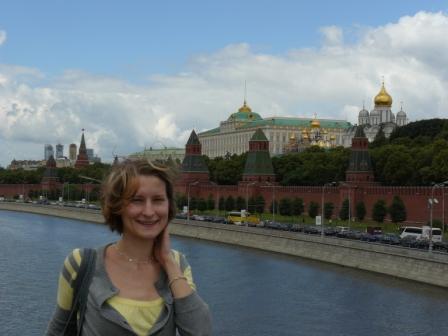The return / Vozvrashchenie (2003), at the public library
Having a fatherless childhood, young brothers Andrei and Ivan have grown closer than most siblings. But when they least expect it, the father the boys have never known returns. Under the cool midnight sun of a coastal Russian summer, the boys eagerly hop into a car for a fishing trip with a complete stranger they absolutely need to believe is their father. As they travel deep into the wilderness, their journey devolves from vacation to boot camp to father-son love triangle and ultimately to a test of wills that pushed to the brink of violence.
Paper Soldier / Bumazhniy Soldat (2008)
- Celebrity bloopers here
Kazakhstan, early 1961. Daniel Pokrovsky, a medical officer, currently works for the first Soviet cosmonauts' troop. There Daniel, already married, finds himself in an incredibly complicated and yet tender relationship with a young girl, called Vera. Later Daniel goes back to Moscow where is in charge of the health of the future cosmonauts. He tries not to be just a doctor for the cadets, but also their friend. He can't agree with the fact that these young men could have to sacrifice their lives for the country. His wife Nina feels the same: she doesn't accept him participating in a project that could put human lives at risk, therefore she keeps asking Daniel to leave his job. Daniel decides to leave his wife. Then one of the cadets dies and the medical officer ends up breaking down. This doesn't stop him from leaving for Kazakhstan in order to prepare the launch of the first man into space. Nina follows him to Kazakhstan, where she learns about his involvement with Vera; however she decides not to leave Daniel alone, understanding how ill he is. Giving up attempts to handle the stress, Daniel escapes the day before the launch, but dies on his getaway. Nina takes Vera with her to Moscow, accommodating the girl in her apartment. Time goes by and both women keep living together: none of them will ever get married again, being both still in love with Daniel.
Wild Field / Dikoe Pole (2008)
The doctor, a handsome young man trying to give a hand to the people living around in this deserted place, seems to be calm and more communicative. We do not know at first the reason why he is there , nor how he happens to work in this harsh place, but we understand that he works there comfortably as he receives each day patients from around his home. Yet, what strikes most is when the doctor cures a peasant from dying, because this latter has been drinking vodka for forty days, I said what strikes most is that choice of an intelligent montage nicely cut by Michel when the doctor goes to check if he gets something from his letter box around his ranch.
The Island / Ostrov, NTSC version with English subtitles (2006)
Winner of 5 Nika Awards (Russian Oscars) including Best Film. Somewhere in Northern Russia in a small Russian Orthodox monastery lives a very unusual man. His fellow-monks are confused by his bizarre conduct. Those who visit the island believe that the man has the power to heal, exorcise demons and foretell the future. However, he considers himself unworthy because of a sin he committed in his youth. The film is a parable, combining the realities of Russian everyday life with monastic ritual and routine.
72 Meters / 72 Metra - with ENGLISH subtitles (2004)
The navy lieutenant captain Peter Orlov and Ivan Myraviev have been serving in the Slav submarine for quite a time. Young and mischievous against time, they used to be best friends. In 1986 they both were assigned to Sevastopol for future service. There they met a pretty girl and fell in love with her at first sight. Nelly chose Ivan and their great friendship cracked. Later on, in the early 90s, after the Soviet Fleet division, the Slav crew refused allegiance to the Ukraine and was assigned to Severogorsk. The crew is preparing for a regular military exercise. The commander, Captain 1st Rank Gennady Yanychar announces the assigned mission. The submarine is to torpedo the maneuver enemy, then leave the area and make itself undetectable with any device at all for a certain time. Nobody in the Exercise Center knows where the submarine might go. And nobody knows it s facing a catastrophe.
Night Watch / Nochnoi Dozor (2005)
This first installment of the trilogy based on the best-selling science fiction novels by Russian writer Sergei Lukyanenko plays upon the tension between light and dark, pitting the superhuman Night Watch patrollers (known as the "Others") against the shadowed forces of the night. But the biggest fear of all stems from the lines of an ancient prophecy, which warns of a renegade Other whose betrayal could bring chaos to the land.
Day Watch / Dnevnoi Dozor (2005)
To protect his son, who has come under the dark side's control, Anton (Konstantin Khabensky) seeks an ancient artifact that threatens to upset an uneasy peace with the light side -- putting Moscow at risk for a devastating cataclysm. Anton finds himself in the middle of a mythic conflict between the forces of light and dark in this sequel to Night Watch, the surprise supernatural hit thriller from Russia.
December 7: Slam poet Gabriela Garcia Medina at the 6:06 Coffeehouse
-
"Few spoken word artist can speak of Revolution and do it with style.
Gabriela is one of them. Born to Cuban parents, she has seen the world
through eyes m...
13 years ago








